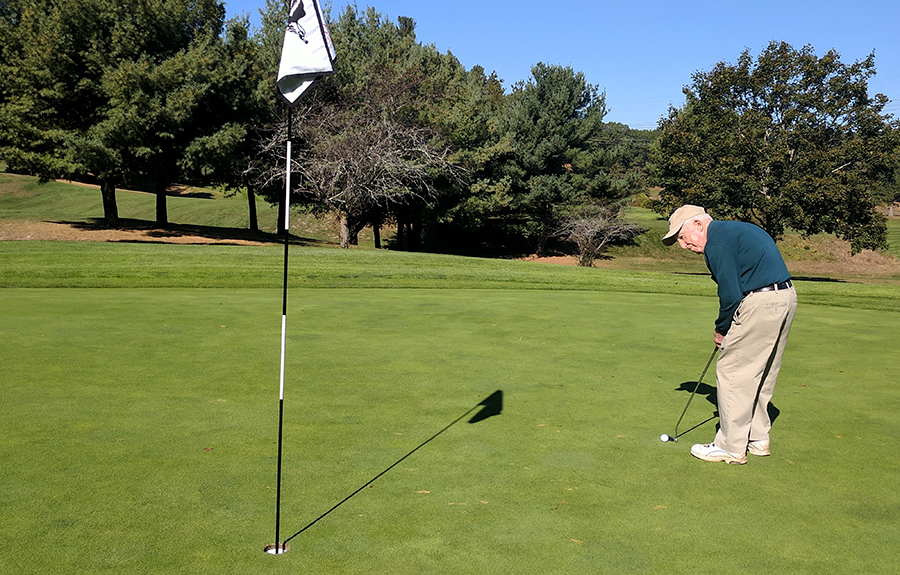People of all ages need vitamin D. It absorbs calcium and supports bone growth in children and helps keep bones healthy in senior years. Vitamin D is so essential to human health that your body makes it by itself when your bare skin is exposed to the sun's ultraviolet B (UVB) rays.
Summer Sunlight Vs. Winter Sunlight
During the summer, 15 minutes of sun exposure may be all you need for your skin to produce large amounts of vitamin D3 (cholecalciferol) if you're fair-skinned. The Vitamin D Council explains that exposing a large area of your skin, such as your back, for a short time can cause your body to produce 10,000 to 25,000 international units (IU) of vitamin D.
However, during the winter months, this natural way of getting vitamin D isn't as easily available to you. Not only are you probably inclined to spend less time outdoors, but the earth's atmosphere blocks the UVB part of the rays during most of the winter's day. The essential vitamin can't penetrate your skin, possibly setting you up for a vitamin D deficiency.
Older Adults and Vitamin D Deficiency
A large percentage of older American adults suffer from vitamin D deficiency. Common reasons for this include:
- Less time spent outdoors
- Reduced dietary intake of vitamin D, which is especially likely if you follow a vegan diet
- Increased weight gain leading to obesity
- Impaired intestinal absorption or diseases, such as Crohn's and celiac, that damage your digestive system
- Reduced skin thickness that affects vitamin D production
According to the Vitamin D Council, it's nearly impossible to get all the vitamin D you need from nutritional sources, so during the winter, when you don't have adequate exposure to sunlight, supplementation may be necessary.
Why You Need Vitamin D
Vitamin D is essential for bone health and strength. In older adults, it's critical for helping to prevent falls and bone fractures. A deficiency of vitamin D is associated with a loss of bone tissue (osteoporosis) and decreased muscle strength. Supplementation improves your lower limb strength and reduces the risk of falling.
In addition to the vital role vitamin D plays in preventing osteoporosis and promoting skeletal system health, recent studies have found it may be necessary for preventing and treating other chronic diseases associated with aging. Accumulating evidence suggests that low vitamin D levels may contribute to the development of age-related conditions that include:
- Cognitive decline: Several vitamin D receptors have been identified in regions of the brain that affect cognition. Low vitamin D levels are associated with an increased risk for Alzheimer's disease and other forms of dementia.
- Hypertension: Vitamin D deficiency is associated with an increased risk for hypertension, or high blood pressure.
- Heart disease: Low vitamin D levels are associated with an increased risk of death from cardiovascular disease and an increased risk of stroke in women.
- Cancer: Low blood levels of vitamin D are associated with an increased risk for rectal cancer and metastatic prostate cancer.
How Much Vitamin D Do You Need?
Your doctor will measure how much vitamin D is in your body through a particular blood test. The Institute of Medicine's recommended dietary allowance (RDA) of vitamin D for those age 1 to 70 is 600 IU daily, reports WebMD. Adults over age 70 should receive 800 IU to optimize rel="noopener noreferrer" bone health.
The International Osteoporosis Foundation (IOF) suggests older adults may need to consume up to 1000 IU per day to reach the required levels. Those who are obese, have osteoporosis, or limited sun exposure may need to increase to as much as 2000 IU per day.
How to Get Your Vitamin D in your Diet
Since an adequate amount of daily safe sun exposure is always possible, most seniors rely on a healthy diet and supplements for the necessary supply of rel="noopener noreferrer" vitamin D. Some of the best food sources include:
- Oily fish, including salmon, tuna, swordfish and mackerel
- Cod liver oil
- Fortified products, such as milk, orange juice, and cereals
- Egg yolks
- Beef liver
- Cheese
The Vitamin D Council recommends supplementing with vitamin D3, the type your body produces in response to sun exposure, as opposed to vitamin D2. Be sure to test your vitamin D blood levels every three to six months to confirm your regimen is safe and effective.
At Brightview Senior Living, we know there's more to wellness than simply the absence of illness. Our chefs bring a focus on senior nutrition and healthy food offerings to each meal to support the vibrant, active lifestyles our residents enjoy. Schedule a personal visit to learn more about the Brightview community nearest to you.

